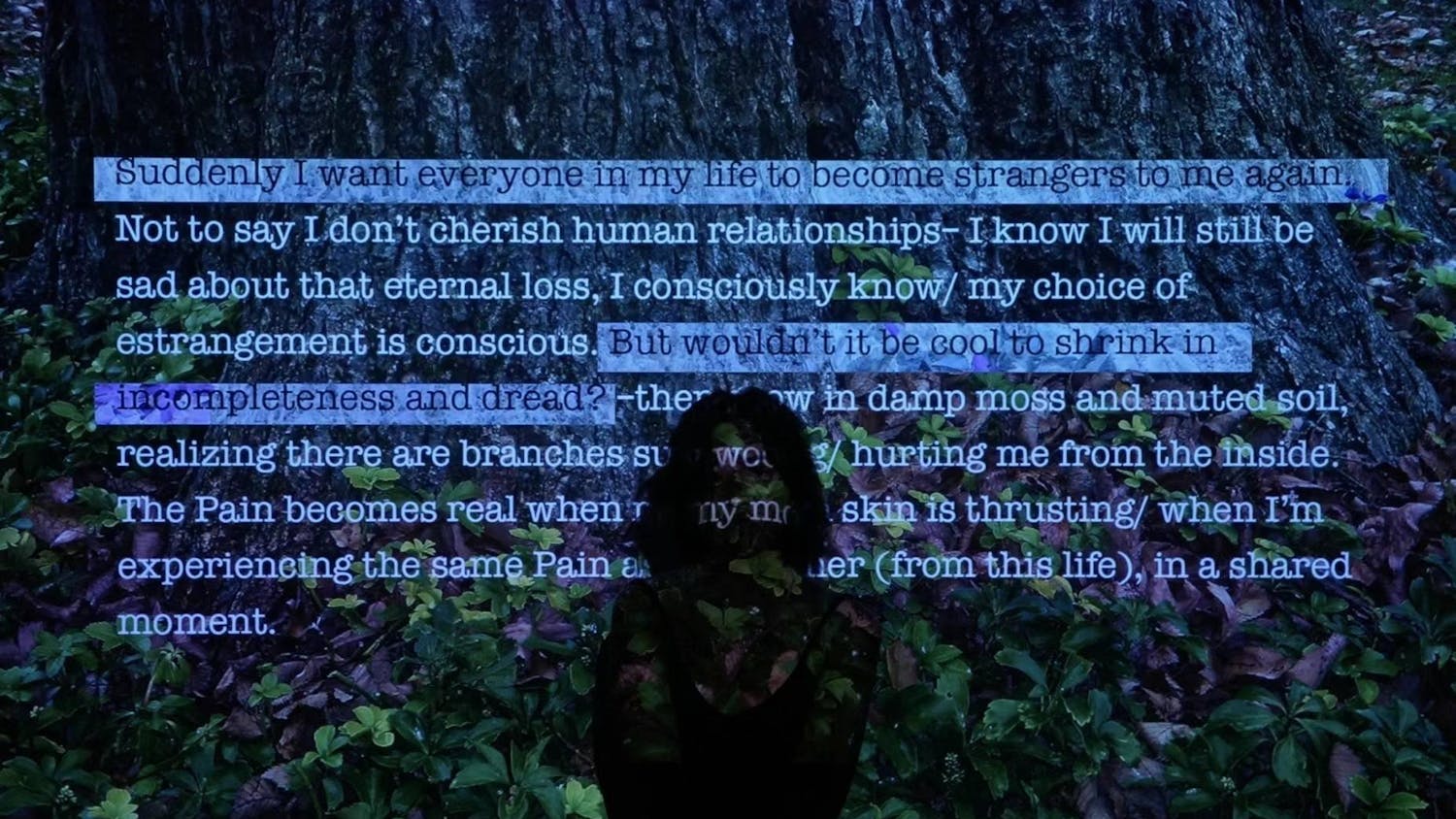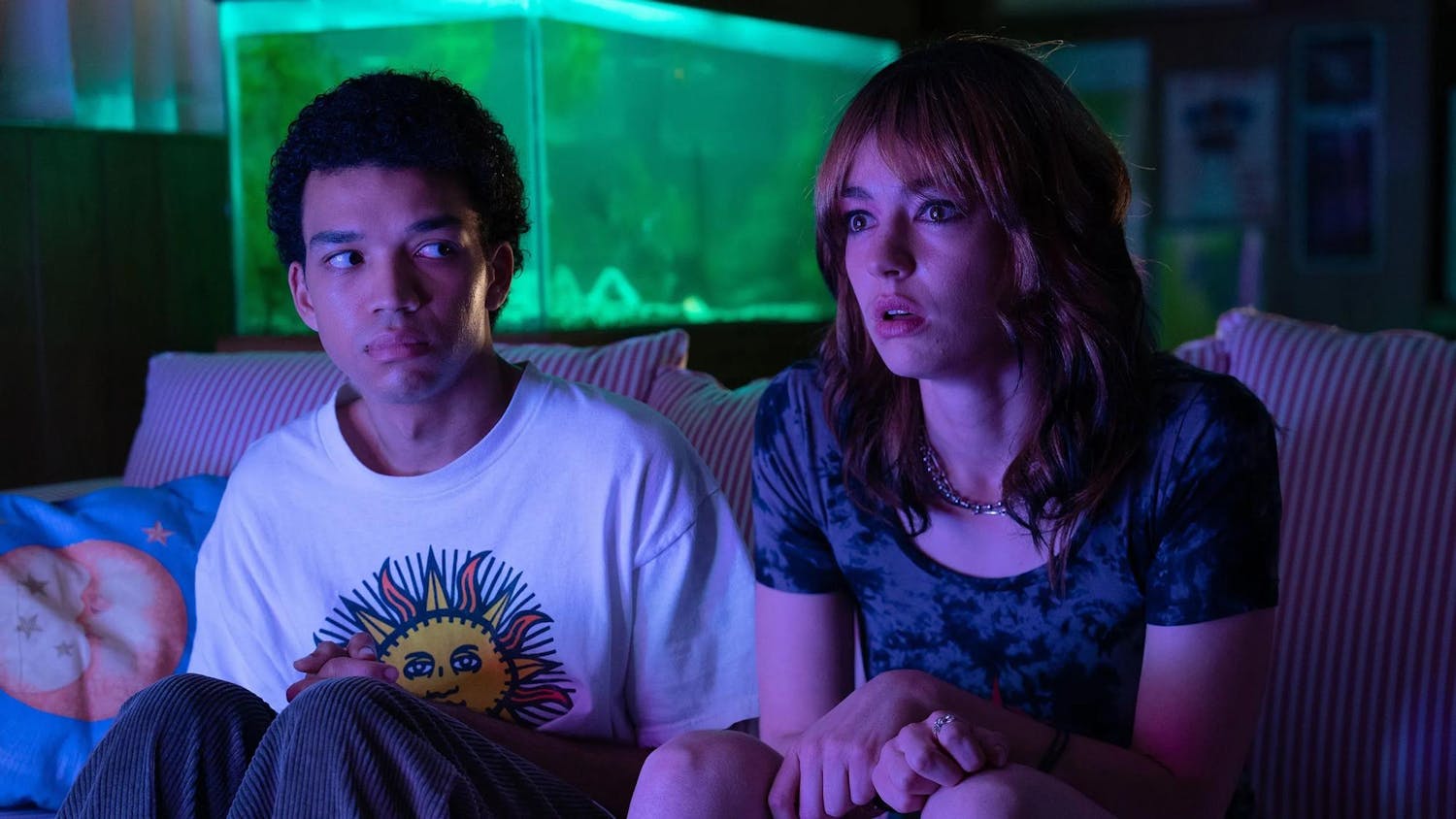In an open rehearsal Thursday evening at 95 Empire Street downtown, the production "Maria Kizito" led its audience down the complicated path of good, evil, suffering and hope as a part of what playwright Erik Ehn, professor of theater arts and performance studies, described as a "spiritual investigation into sincerity in prayer." The production is a part of a cycle of plays written by Ehn entitled "Soulographie: Our Genocides" that will premiere in November at La MaMa Experimental Theater Club in New York.
The play tells the "spiritual biography" of Maria Kizito, one of two Roman Catholic nuns found guilty of contributing to the deaths of 7,000 Tutsis during the Rwandan genocide in 1994, according to the "Soulographie" website. During the bloody war, over 800,000 people were killed as the international community stood by and did little to help. At the time of the nuns' trial in 2001, CNN reported that the nuns were charged with conspiring with Hutus to murder the Tutsis refugees.
The play explores the story of the genocide and the events that occurred at this Rwandan convent through the lens of the rituals and prayers the nuns continued to practice with as much precision and consistency as the murders they helped orchestrate.
Ehn said he wrote the 17-play series when, after years of traveling to East Africa and South America, he started thinking more fully about his own faith and the issues raised by injustice and genocide in the world. The magnitude of the issue of genocide made it necessary for Ehn to have multiple productions with diverse perspectives and unique narratives, he said. Sharing the same Catholic faith with the nuns at the heart of "Maria Kizito" made the overwhelming topic of genocide more personal for Ehn. "The press made it easy to treat it like something strange that happened faraway" rather than a subject that people could relate to, Ehn said.
This past September, another play from the "Soulographie" series - "Yermedea" - premiered at Leeds Theater. Both plays explore the issue of genocide in different regions of the world. "Yermedea" is set in El Salvador, one of the countries that Ehn visited throughout his travels. The two plays bring different angles to the examination of genocide, with "Maria Kizito" originating from the history of the genocide as opposed to the "myth and ritual" employed in "Yermedea," he said.
The seven-person cast of "Maria Kizito" includes artists from both the United States and Uganda who have come together through a mutual interest in the relationship between theater and activism. Being able to work together and discuss how to stop genocide allows the cast members to discover new viewpoints, said Ugandan actor Tonny Muwangala. Muwangala, who is the only male member of the cast, plays Rekeho, a member of the Hutus who worked with Maria Kizito to murder the Tutsi refugees. Since he is a native of one of the countries that borders Rwanda, Muwangala said he uniquely understands this period of history that many Americans overlook. Part of the play's role, Muwangala said, is bringing together people from America and East Africa to connect over the "universality of genocide." The brutality, selfishness and greed that are the essence of genocide are problems that affect people across the world at different levels, he said.
The rehearsal on Thursday was not so much a formal run through of the production as it was an experiment in the different ways theater can contribute to discussions about genocide. The evening began with a singing practice of some of the compositions that were created based on Ehn's script. The songs harmoniously combine melodies of African language and culture with the peaceful chant of a Christian hymn in a way that conveys both the instability and spirituality that are at the heart of the play. The actors then divided into small groups and performed reenactments of different scenes, incorporating the audience in each performance in various ways. Through this, the audience was pulled into the dark spaces the refugees were trapped in, into the sounds they heard and into the spirits of people whose emotions still remain even though their bodies do not.
The evening concluded with a discussion between the cast members and the audience about their thoughts during those scenes and their reflections on how to approach the larger question of genocide and injustice.
Director Emily Mendelsohn said "the play is about hope ... taking us into despair to the place where hope is not recognizable." Viewers need to be prepared for a play that "works more like a meditation or reflection than a roller coaster," Ehn said, and be willing to open themselves up to look at the horrors of genocide through spirituality and art.
Ehn said he hopes "Maria Kizito" can contribute to discussions about genocide, poverty and injustice in the world. "Genocide requires us to be humble in ignorance and unstable in preparation because it is bigger than us," Ehn said. It is part of the nature of the production that the audience leaves wrestling with questions of how tragedies like this can occur and how humans are capable of creating them. "The only meaningful response is to change your life," Ehn said.
ADVERTISEMENT




